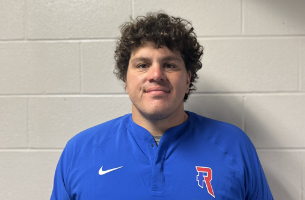STATEWIDE–The idea of going without food for 24 hours might scare you, but one personal fitness coach in Avon says doing it could help you live longer and better.
It is called fasting, the willful refrainment from eating and sometimes drinking. If the idea of it seems overwhelming to you, you are not alone.
“Being hungry once in a while is actually good for your health. We eat food constantly. The average person eats for 15 hours a day. That isn’t constant throughout the day. That is from the time they have their first bite of food to their last. Our ancestors typically ate one or two meals a day and they didn’t have a Starbucks to go through every time they needed a snack or a pantry to go through every time they needed something,” said Bo Raley, personal fitness coach at Exercise Inc. in Avon, in an interview with WIBC’s Terri Stacy on “First Day” Sunday.
Since we don’t deal with hunger as much anymore, Raley says our senses are dulled, our brains don’t work as well, and our drive isn’t as high.
“We’re living longer, but our health is shorter. If we keep going at this rate in our country, half of our population will be obese by 2030. Back in the 1800s, doctors started to hypothesize that fasting could prevent certain diseases. Now we know scientifically that they were right,” said Raley.
Raley calls fasting the body’s way of “taking out the trash.” He recommends skipping one meal a month. Then as you get braver, you can try doing it one time a week. Raley urges you to still be drinking water while you are fasting.
“When you don’t eat, your body responds by finding damaged, unhealthy cells in the body. They then rip those cells apart and use the proteins in the damaged cells to survive and make new cells. If you skip breakfast or skip dinner one time a week, you’ll eat within an 8-hour window and give yourself an opportunity the chance to go for 16 hours without eating. That will give your body an opportunity to destroy a lot of cells that could potentially cause you to end up getting cancer,” said Raley.
For example, he’s had clients who have had dinner at 7 pm the night before, skipped breakfast, and skipped lunch. Then their next meal is at 7 pm the next night to fulfill the 24-hour fast.
“You’ll have more energy, you’ll start to feel better, and food will taste better,” said Raley.
If you are diabetic and want to fast, Raley says you need to talk to your doctor first.
LISTEN: Full Interview with Bo Raley













